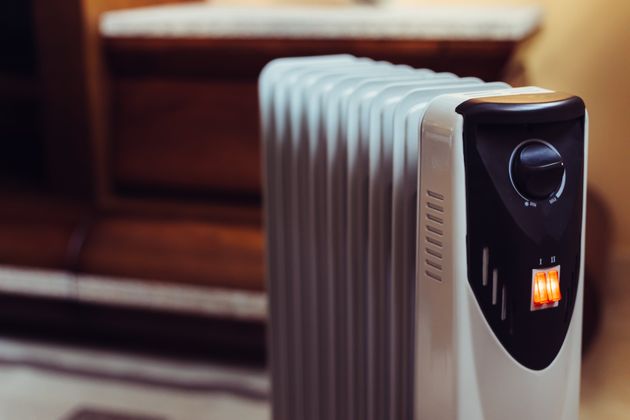
Spring is on its way but this is the UK and in typical UK fashion, it’s still cold. This means many Brits are still trying to find ways to save money on their energy bills.
The average bill is expected to rise from £2,500 to £3,000 this spring when the UK Government raises its energy price guarantee.
Advertisement
So it’s not shocking to know that people are sharing heater hacks left, right and centre on social media apps.
However, many of these so-called ‘hacks’ that are circling around can actually waste more energy and increase electric bills, with experts warning against trying them out for yourself.
Fortunately, an energy expert from Land of Rugs has done some major debunking around some of these ‘tricks’ and has a few tips on how to keep your house warm for less instead.
1. Turning the heat off if you are not home
While leaving the heat on low sounds like it will waste money, increasing the temps 10-15 degrees until your desired temperature has been reached is more expensive than keeping the house warm throughout the day.
Advertisement
“Keeping the thermostat set between 16-17C when nobody is home and bumping it up a couple of degrees to 18-20C when needed is the most efficient way to heat the house, as small adjustments of 1-2 degrees for short periods do not greatly increase energy bills,” the pro explains.
“Program your thermostat or set a timer to increase the heat a couple of degrees, just when some extra warmth is needed, such as before bed or in the morning.”
2. Tinfoiling the radiators
This is a common “heating hack” on TikTok, but it doesn’t really increase the temperature in your home or save money. In order for the tinfoil to be effective, radiators need to be turned on extremely high for long periods of time.
“The best way to save money with radiators is by making sure that they are working efficiently, not blocked by furniture, and that they have been bled at least once a year,” the expert from Land of Rugs says.
3. Using portable heaters
Portable heaters are usually not cheaper to use than central heating, as using them to heat the entire house can cost 2-3 times more than central heating. If you want to heat up one room in your house, a space heater could potentially save money, but central heating still seems to be the cheapest way to heat an entire home.
Advertisement
Instead of following these hacks, the expert suggests following these instead.
Seal windows and doors
Resealing doors and windows with caulk and weather stripping is beneficial, but using cling film or rolled towels around windows and doors is another inexpensive way to keep draughts out and heat in.
“Add a few extra layers by putting bubble wrap over windows and closing the curtains or blinds to keep the cold air from entering rooms,” they suggest.
Draught-proof your letterbox
If your letterbox is not fitted snugly to your door, it can let heat out and cold air in. Fitting a letterbox draught excluder with brushes can prevent cold air from seeping in through the box.
“A money-saving hack is to pop a sponge in your letterbox to absorb the cold air. Make sure it is fitted snugly and be sure to tell the postman,” the expert adds.
Install curtains over your front door
While many have curtains over windows to assist with keeping the heat in, it is also beneficial to install curtains above the front door. Door curtains can prevent cold air from seeping in whenever the door is opened.
Advertisement
The expert advises, “make sure to install the curtain rod a foot past the entryway if possible, and choose curtains made from thick, thermal material.”













 (@g_gosden)
(@g_gosden) 




